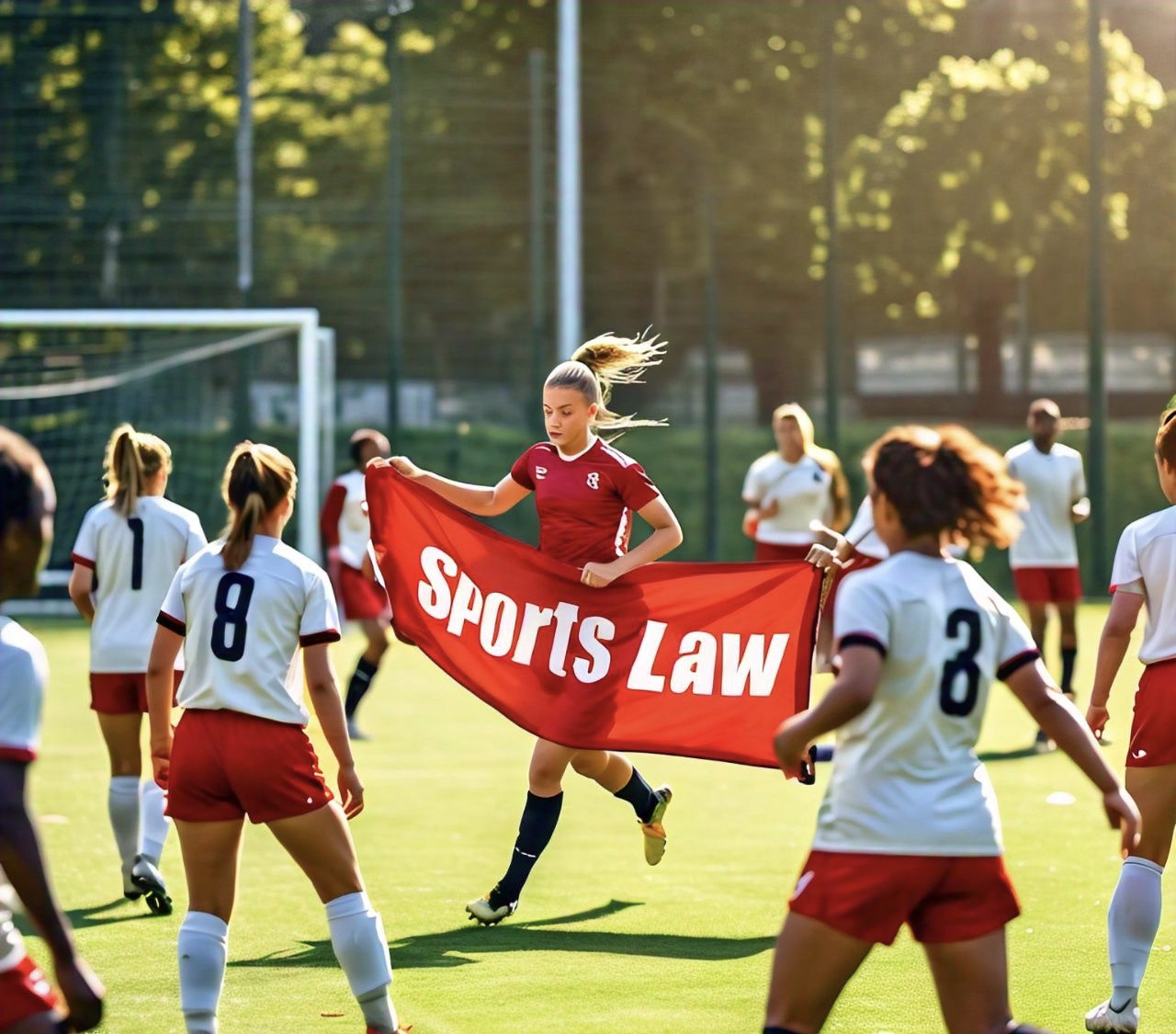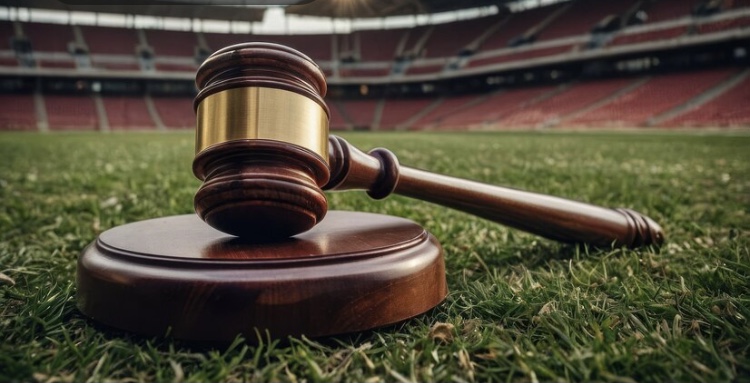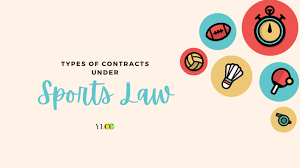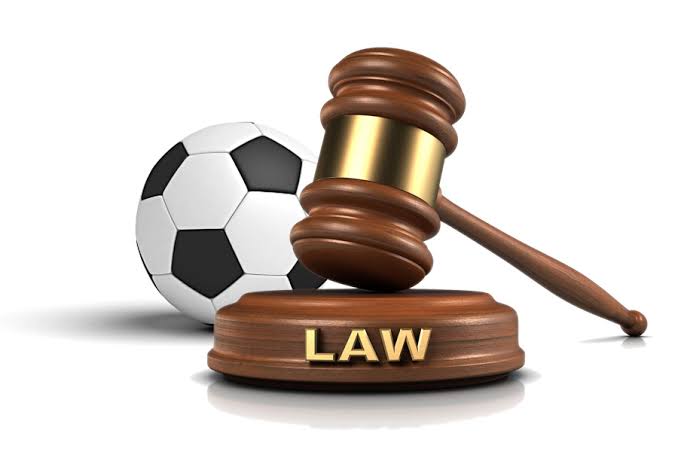
INTRODUCTION TO SPORTS LAW IN NIGERIA:
I could still remember vividly, As a teenager (19yrs), During those times we went to spend Christmas with Mama in a Village of ours Otan-Ayegbaju, Osun State, My cousins and I will draw some lines on the ground and with it, we formed a sport called single-leg-hopping. Mama would tell us that particular Exercise we are engaging on is not only a recreational activity but also a sport that gives strength, Power and stability.
What I’m aiming to bring out from this brief illustration above is that Sport itself dated back to the very human existence and developed informally by war, recreation, hunting and expedition. One of the consequences of sport development is the advancement of sports law. Sport Law is of recent development. Sports law is an area of law that encompasses multitude areas of law brought together in unique ways. It is an amalgamation of several disciplines of law married together in unique way. Sports Law is aggregation and combination of several areas of law such as Law of Contract, Tort, Entertainment, Constitutional and Human Rights, Intellectual Property, Criminal law, Law and Practice of Disputes Resolution, Immigration Law, Commercial Law and Labour. For instance, Employment relations in football are governed by a set of distinct institutional mechanisms while contracts between players and clubs is under regulatory framework known as the transfer system enforced by the football global governing body known as FIFA and individual country Federation. Therefore, the study of Sports Law requires an interdisciplinary approach.
Debunking the Myths: The reality of Sports Law as a Distinct field:
For over some years that I’ve took a likening to the concept of Sports Law. I’ve observed that the notion of Sports Law as a distinct field has been met with skepticism and misconceptions. Many view it as a niche or specialized area, while others question its legitimacy as a standalone discipline. There is no consensus among scholars as to whether the study of the laws which regulate and govern the sports industry be called ‘Sports Law’ or be called Sports and Law against the background that it is amalgamation of various laws which are disjunctive. The latter argue that Sports and Law so called is mere application of general laws without a coherent integration to make a solid area of law and the collection of rules and statutes that apply solely to sports and unrelated all kinds of legal doctrines to the extent those legal doctrines affect sports. They conclude consequently, that, it may better be termed as ‘Sports and Law’. Thus, sports law in this looser sense is little more than the application of all of law to sports situations. They argued further that Sports law is not a separate and intellectually coherent body of law.
DISSECTING SPORTS AGREEMENTS IN NIGERIA;KEY CLAUSES AND IMPLICATIONS:
The dynamics of Sports law in Nigeria can be very daunting leaving many stakeholders in a position of certainty about their rights and obligations. And these contracts are very crucial because they are used for clarity in Defining relationships. Some of these contracts/Agreement are highlighted below:
1. Player Contracts: Between athletes and teams/clubs, outlining terms like salary, benefits, and obligations.
2. Sponsorship Agreements: Between athletes, teams, or events and sponsors, detailing sponsorship terms and obligations.
3. Partnership Agreements: Between sports organizations, teams, or events, defining partnership terms and responsibilities.
4. Agent-Athlete Agreements: Between athletes and their agents, outlining agent responsibilities and commission rates.
5. Coaching Contracts: Between coaches and teams/clubs, specifying coaching terms, salary, and benefits.
6. Venue Agreements: Between event organizers and venue owners, detailing venue usage terms and conditions.
7. Broadcasting Rights Agreements: Between sports organizations and broadcasters, outlining broadcasting terms and fees.
8. Licensing Agreements : Between sports organizations and licensees, permitting use of intellectual property (e.g., logos, trademarks).
9. Endorsement Contracts: Between athletes and brands, detailing endorsement terms and obligations.
10. Release Forms: Waivers or releases signed by athletes, assuming risk and liability for injuries or damages.
11.Image Rights Agreements: Between athletes and teams/clubs, governing use of athletes' images and likenesses.
12.Transfer Agreements: Between teams/clubs, facilitating player transfers and outlining transfer terms.
THE LEGAL FRAMEWORK OF SPORTS LAW IN NIGERIA:
A timeline of sports policy development in Nigeria would commence with the Sports Development Policy of 1989. Although this policy statement never attracted any fame, it vested in the then Federal Ministry of Sports and Social Development the responsibility for the development and organization of sports and physical fitness in Nigeria. This responsibility was to include co-ordination of and co-operation with other sports bodies/groups as well as financial assistance. Together with the subsequent National Sports Policy of 2009, both policy documents represent government initiative and efforts towards sports development. It is not unjust to conclude that neither has attained any success in terms of implementation or even publicity.
Nigeria now operates under the 1999 Constitution which, like the South African Constitution, does not make express provision for sports governance or development. As stated above, the situation in South Africa is remedied by relying on relevant constitutional provisions as well as other legislation recognizing organizations with specific mandate for sports development. Chapter II of the Nigerian Constitution outlines Fundamental Objectives and Directive Principles of State Policy and although the government responsibilities therein are not legally enforceable, a viable sports development policy can be hinged thereon as with the South African example in the White Paper. Under the fundamental objectives and directive principles there are political, economic and social objectives which can be harnessed for sports development as follows:
- Political objectives include the encouragement of national integration and the prohibition. As stated earlier sport is a major source of national integration and the promotion of sports competition and participation would help in the attainment of this goal.
- - Economic objectives include the promotion of national prosperity and an efficient, a dynamic and self-reliant economy. The advancement of sport serves as a source of livelihood for sports men and women, but also for those involved in coaching/education, infrastructure provision and maintenance and other allied endeavour. It also promotes industries such as media and merchandising. Summarily, the development of sport has widespread economic benefits.
- - Social objectives include the provision of adequate facilities for leisure, medical and health purposes.
As highlighted earlier, the promotion of sports development includes recreation and leisure, which ultimately promote health and general wellbeing.
A perusal of federal legislation in Nigeria reveals a shortage of legislation geared towards sports
development. The federal laws which have a bearing on sport are the National Institute for Sports
Act, Social Development Act and Nigeria Football Association Act.
CONCLUSION:
The intermittent Achievement Of Nigeria in Sport Activities is quite commendable that once in a while Nigeria has recorded brilliant successes in competitive sports at national and international levels. This is but just a glimpse of what is to come in the desired sports development objectives of the nation following the Objectives of the Legal framework of Sports in Nigeria. Thank you.



